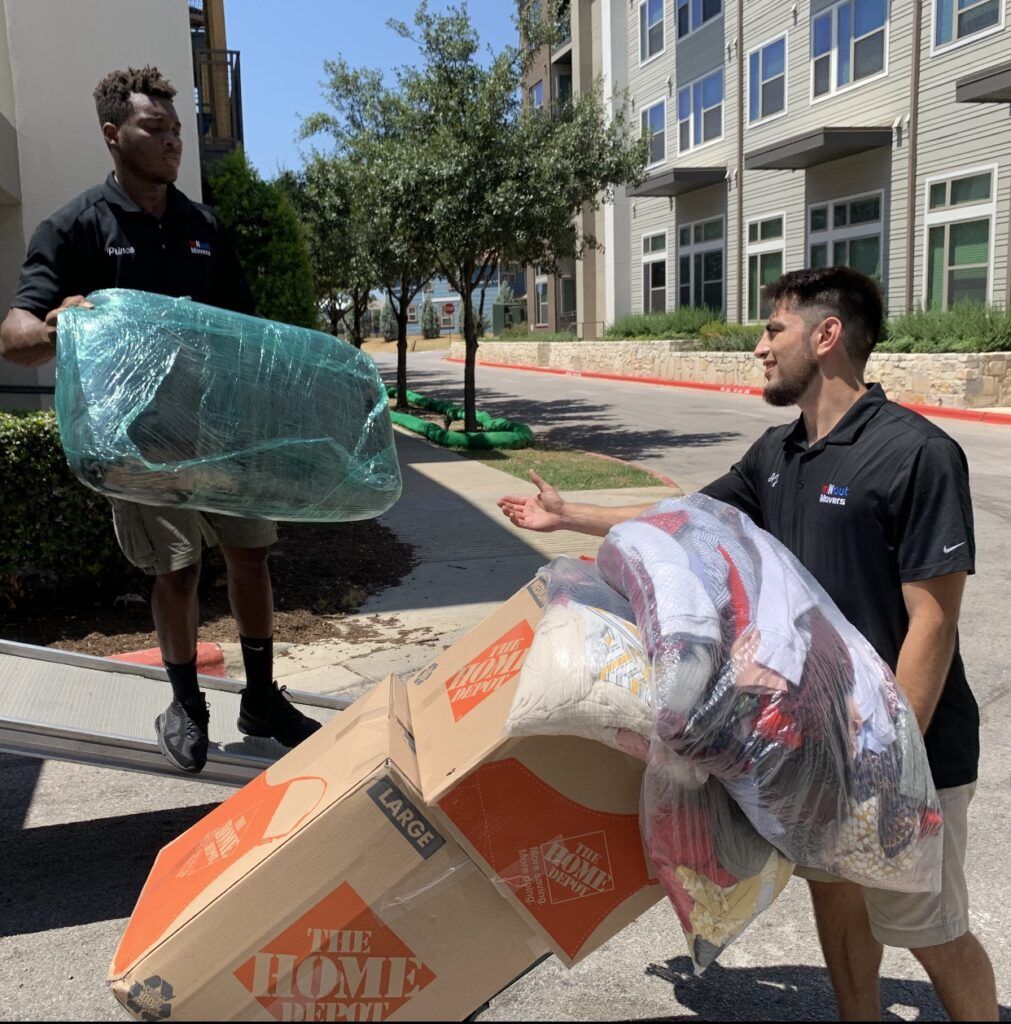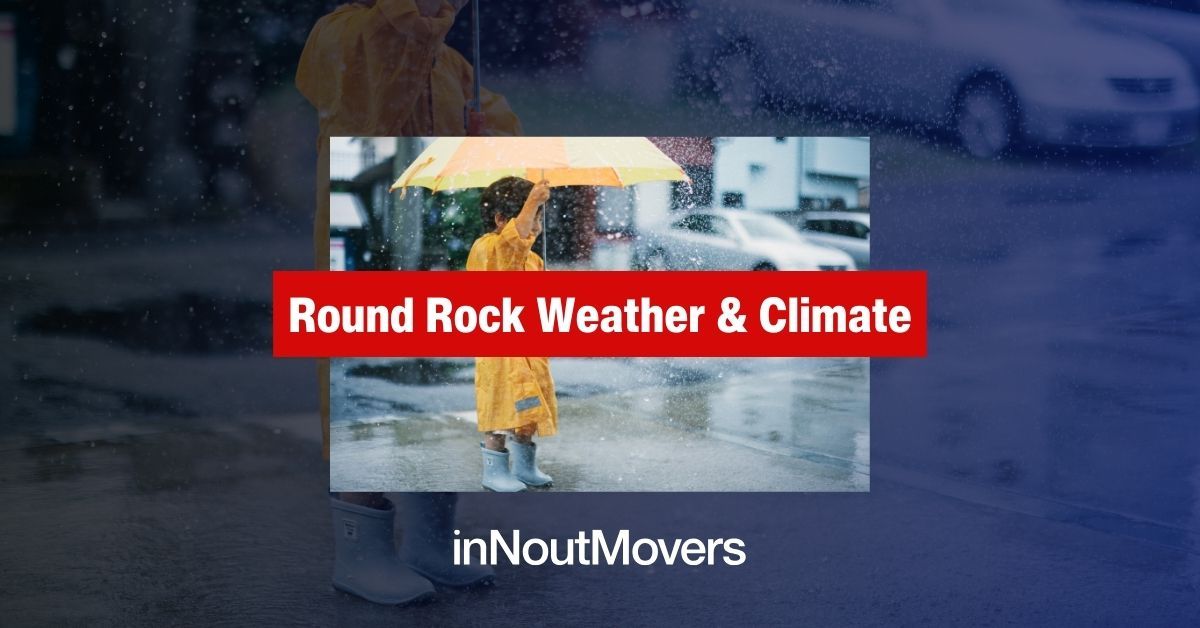How To Quote A Move (Tips for Quoting a Move)
Darion Pugh • February 3, 2022
If you’ve ever found yourself behind the wheel of a familiar orange and white box truck, loaded to the gills and bumping down the road at a break-neck 55 miles per hour, then you’ve likely moved. It’s an undoubtedly laborious process and if finding a new home wasn’t difficult enough, figuring out how to get there presents an even greater set of challenges.
Luckily, there are a lot of options when it comes to moving your life from one town to the next. It depends on how much or how little work you want to do yourself, from a complete DIY operation to a fully executed move with a service, the overall cost of your relocation can range widely.
Before we delve into the process of obtaining a quote and the best way to approach getting one, let’s first look at a few common types of movers to get the full scope of what services are out there:

Local Movers
These “Mom and Pop” operations are available in just about every town or city and if you’re looking at an easy, short distance relocation, a local mover could be just what you need. To elaborate on a short distance, these types of services aren’t viable if you’re going more than 100 miles in any direction – operationally, it could be impossible for the mover and would almost certainly cause undue stress on your wallet.
Typically, local movers charge for their services by the hour, and the premiums range depending on what each company offers, but you should expect to pay between $30.00 and $40.00 an hour per mover assigned to your job, on average. Meaning, the final cost of your relocation will be determined by the number of work hours it takes the moving crew to load and offload their moving truck (generally supplied by the mover) and the drive time between both locations.
A Quick Moving Tip:
Some movers will offer to pack your things at an additional cost, but if you want to maximize your savings, consider the following:
- Get your boxes packed ahead of time.
- Tape or tie long items like bed frames, or curtain rods so they aren’t loose.
- Arrange your boxes and furniture in an easily accessible location so the movers have a clear, quick path in and out of your home.
- There are several apps available to help you inventory your belongings which can help you quickly organize your things as they come off the truck.
Long-distance Movers
If you’re moving long-distance, it’s likely that you’re moving interstate, which means a more robust service will be necessary to get you from point A to point B. Long-distance moving companies don’t usually charge by the hour the way your local movers would. For this type of service, think of your belongings as a shipment, and the cost of moving them is predicated on the overall weight and distance they’ll be “shipped.”
Each company will offer a different range of services to make your move even easier, and you can certainly upgrade your relocation process, but be careful, addons can increase the overall cost of your job dramatically. When planning a long-distance move, consider tackling as much of the at-home work as possible to keep your costs low.
We’ll cover more details about getting moving quotes soon, but in the case of long-distance or international moves, it’s highly recommended to ask three or four reputable movers for in-house estimates to get an accurate quote as you may be able to leverage the pricing of one service over another to get the best deals.
International Movers
Moving to a new country might not happen often, but it certainly does happen. Work-related moves can take you just about anywhere, or perhaps it’s time to relocate to the home country of a spouse. Whatever the reason, an International Move comes with a unique set of challenges and operational requirements which are charged differently than a normal move.
You’ll need the help of a company that specializes in International Relocations and is not a stranger to the heap of paperwork required to get you to your new home. You must consider that a move overseas is subject to a long list of things, such as:
- Compliance with Customs Rules and Global Regulations
- Selecting Air or Sea Shipment
- Import restrictions
- Proper insurance
Due to the complexities of a project like this, you would be better served to let the service handle your move from end to end. Similar to long-distance movers, consider the transportation of your belongings like a shipment, but due to the nature of the shipment by sea or by air, the costs are based on the volume of your belongings measured in cubic meters or feet as they will be packed away in shipping containers.
Now that we’ve covered everything from in-town moves to relocation overseas, let’s take a quick look at the level of service available within each of these options and how to get a quote for all of them.

Full-Service Move
Full-service movers shoulder all the work of a move from end to end. If you have the coin and would rather not disrupt your already busy life, a full-service mover will pack your things, load them, transport them and unload them at your new address. Good ones will even assemble your furniture and install things like wall mounts and mirrors.
Paying a little extra and opting for a moving company to provide you with full service is your most convenient option. Not only do they manage the physical move and execute it efficiently, but they will also assume liability if anything happens to your belongings while in their possession.
This will save you a lot of time and effort, and while it is the most expensive option available, it will give you the peace of mind that your things are protected and that you’ve eliminated the disruption inherent in a move from your life.
Partial Move
Most moving companies, whether local or long-distance will have addon options, like the previously mentioned full-service selection, available for you to choose from, ala carte. Typically, you will have the option to add services during the process of obtaining a quote which will often include:
- Packing your home: If assembling boxes, packing away your things, taping them up and labeling isn’t your thing, you can request a professional packing service with the moving company you’ve selected. Set aside a date and time and they will come to your home and start the process.
- Loading and unloading: If you’re concerned about lifting heavy or oddly shaped items and don’t want to risk injuring yourself or damaging your things, you can also request a loading and unloading service. In this case, a team of movers will load your belongings into a truck that you have packed and will transport.
- Delivery services: If you don’t mind packing and loading your belongings into a moving truck, but driving something larger than a Toyota seems daunting, you can opt to hire movers to transport your belongings. Typically, at this point, you can also select to have the movers unload your things.
- Storage Services: You will often see moving companies coupled with storage facilities. This happens to be an excellent combination as sometimes you may need your things stowed away until your move can be completed.
Auto transportation
Some movers will also offer auto transport, whether it’s simply providing the towing equipment, or loading and moving your vehicle for you, it’s an important thing to note if you don’t want to put unnecessary miles on your car during your move.
Now that you have a better understanding of the types of movers available and some of the services they are equipped to render, let’s review some of the best ways to approach obtaining a quote and securing a commitment from a moving service.
Start obtaining quotes as soon as you know you’ll be moving.
Preparedness is your ally in a move, meaning as soon as there is a whiff of relocation in your life, you should be researching the team who will get you from point A to point B. There are a lot of reasons to be johnny-on-the-spot in the early stages of a move, but not the least of which is ensuring your move date is secure.
Roughly 80% of all moves happen during the summer, which means prices tend to skyrocket during those months. If you know your moving with enough notice and secure a move date in the off-season, you stand to save yourself a decent amount of money. It’s like booking a flight, the closer you buy the ticket to your departure the more it will cost.
Additionally, collecting quotes early for your move will provide you wider access to movers with unclaimed time during the period you’re looking to move in.
The rule of three: obtaining multiple quotes.
You’ll need to fight the urge to click, call and book the first search result for movers on Google for the sake of getting it all over with. There’s no worse feeling than spotting a bargain after you’ve already spent the barn, which is why it’s important to aggregate at least three options and get an idea of what the industry charges for your moving job.
But before you pick up the phone you should know the difference between a “binding moving estimate” and a “non-binding moving estimate”.
Binding Moving Estimate
A mover might provide you with a binding estimate which means that they must honor the price they provide you, so long as nothing changes between the time of the quote and the day of the move. Meaning, if the items you confirm on an inventory list are what gets moved, the price should match the quote.
Whether a binding estimate is provided to you in person or over the phone is up to the mover, but we’ll get into that piece in a moment.

Non-binding Moving Estimates
A mover might also provide you with a non-binding moving estimate, which simply means that the quote is the mover’s ballpark estimate based on what information you’ve given them. The final cost of the move could likely be much higher depending on the weight and volume of what you’re moving, meaning you may be billed for the difference beyond the non-binding quote in whatever manner the mover decides to use.
What To Ask During a Move
Now that you’re aware of some of the industry jargon, there are a few questions you should template and have ready to ask every moving company you contact. Don’t be shy to ask the hard questions, after all, it’s your hard-earned money:
- Can you provide an in-house binding estimate? This is truly the only way to not only get the most accurate estimate for your moving costs but to protect yourself against undue charges from a moving company. But don’t forget, it’s also a good opportunity for the moving company to get their arms around the task at hand and plan for an efficient move.
- Are there any discounts available? It’s like the old saying goes, you miss 100% of the shots you don’t take and as mentioned before, leveraging moving estimates from other companies could also secure you a better rate. There’s no need to throw lower prices in anyone’s face but having a negotiation chip in your pocket is never a bad thing.
- What is the time frame for completion? You have a busy life, and timing is everything. Asking your selected moving company how long it will take them to complete the job of your move is the last box to check. Pricing is no doubt the primary aspect of choosing a moving company but doesn’t compromise your move date for a better price.
In-home vs. Over the Phone
This is an important part of gathering quotes and works into the binding and non-binding estimates conversation nicely. Taking an estimate over the phone will likely never end in a binding estimate which is the goal.
- In-home estimates mean a representative of the moving company will come to your house and assess the scope of the project to provide the most accurate quote. In this instance, you are far more likely to gain a binding estimate.
- Over-the-phone estimates might be second nature to us now in 2022, we’re already on our devices and computers, however, obtaining an estimate by way of phone is the least accurate way to secure a price for your move. If you don’t have the option to do an in-home estimate, be sure that you have an inventory list of all the items and preferably, the dimensions of the items you will be moving. This could potentially save you money, however, the risk of hidden fees or additional billing remains present.
Ultimately, you will want to do what you can to get a moving company at your house, especially if you have more than 1 room to move, a garage, or any vehicles. Getting an accurate quote is more important than getting a cheap one.

Understanding your insurance
It’s incredibly important to understand how your things are protected, or not protected during a move. While there are measures in place to ensure that your selected moving company has some amount of liability for the conditions of your belongings while they move them, there is still more to know. For example, moving insurance comes in handy and is highly recommended for your protection.
As mentioned before, the U.S. Department of Transportation Federal Motor Carrier Safety Association requires that all transportation firms, like a moving company, are liable for your things while in the care of the company.
But this is simply not the same thing as an insurance product. There are two types of basic liability that moving companies are required to offer:
- Full value
- Released value
Full Value Liability means that the mover is financially responsible for the value of all your belongings, but I will come at an extra cost. Whether you obtain your quote through an in-home estimate or over the phone, you should be sure to inquire about moving insurance or to know the additional cost of Full Value Liability as this is the only way to truly protect your things.
Released value means that the company is only responsible to pay 60 cents a pound per item damaged in the move. For example, if it takes movers multiple days to get you to your location, and the box containing your belongings is water-damaged due to leakage (more common than you would hope) the moving company will only cover you for pennies on the dollar.
Don’t rely on your Homeowners Insurance without doing a little research, make sure that any products you add to your policy are comprehensive and don’t only cover damage to your belongings as a result of collision damage.
Final Thoughts When Thinking About Moving
Keep these things in mind when it comes time for you to pack your bags and head to your next home. Whether it’s down the road, across the country, or over the ocean, these tips for obtaining a quote for your move may likely save you hundreds, hopefully, thousands of dollars.




